JOHN CONSTABLE is one of the greatest painters of British weather. MARK EVANS reveals what you can learn from his sketches and diaries

John Constable (1776-1837) is best known today as the painter who transformed the art of landscape painting by combining the lessons of the Old Masters with his own profound observations of nature. This resulted in some of the most familiar and best-loved paintings of the English countryside.
He was also a peerless painter of the weather, whose depictions of the sky determined the remarkably expressive mood of his great landscapes such as The Hay Wain (1821) and Salisbury Cathedral from the Meadows (1831). These were based on many vibrant and spontaneous oil sketches which he painted mainly outdoors, direct from nature. The most spectacular were made on Hampstead Heath in 1821-2 and at Brighton in 1824. Some of the most radical are pure skyscapes in which the clouds appear alone. Constable’s interest in accurately depicting the sky coincided with an expansion of popular interest in science and the birth of modern meteorology, a subject he followed closely.
HAMPSTEAD AND THE SKY STUDIES, 1819-24
On account of the poor health of Constable’s wife, Maria, the couple rented accommodation at Hampstead from August 1819, and settled there in 1827. High above the city, its elevated location and relatively smoke-free environment offered an ideal location to view the sky, as had been discovered over a century earlier by the Dutch master Willem van de Velde the younger (1633-1707).
At the British Institution on 13 July 1819 Constable studied two of van de Velde’s maritime paintings, and he could have read in his copy of William Gilpin’s On Landscape Painting: A Poem (1792) how his Dutch predecessor made cloud studies from a boat in the Thames, in black and white chalks on blue paper.
Esta historia es de la edición December 2018 de Artists & Illustrators.
Comience su prueba gratuita de Magzter GOLD de 7 días para acceder a miles de historias premium seleccionadas y a más de 9,000 revistas y periódicos.
Ya eres suscriptor ? Conectar
Esta historia es de la edición December 2018 de Artists & Illustrators.
Comience su prueba gratuita de Magzter GOLD de 7 días para acceder a miles de historias premium seleccionadas y a más de 9,000 revistas y periódicos.
Ya eres suscriptor? Conectar

Still life IN 3 HOURS
Former BP Portrait Award runner-up FELICIA FORTE guides you through a simple, structured approach to painting alla prima that tackles dark, average and light colours in turn
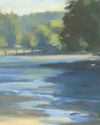
Movement in composition
Through an analysis of three masterworks, landscape painter and noted author MITCHELL ALBALA shows how you can animate landscape composition with movement
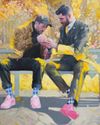
Shane Berkery
The Irish-Japanese artist talks to REBECCA BRADBURY about the innovative concepts and original colour combinations he brings to his figurative oil paintings from his Dublin garden studio
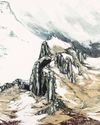
The Working Artist
Something old, something new... Our columnist LAURA BOSWELL has expert advice for balancing fresh ideas with completing half-finished work
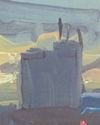
Washes AND GLAZES
Art Academy’s ROB PEPPER introduces an in-depth guide to incorporating various techniques into your next masterpiece. Artwork by STAN MILLER, CHRIS ROBINSON and MICHELE ILLING
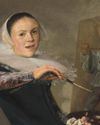
Hands
LAURA SMITH continues her new four-part series, which encourages you to draw elements of old master paintings, and this month’s focus is on capturing hands
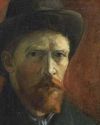
Vincent van Gogh
To celebrate The Courtauld’s forthcoming landmark display of the troubled Dutch master’s self-portraits, STEVE PILL looks at the stories behind 10 of the most dramatic works on display
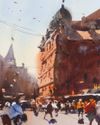
BRING THE drama
Join international watercolour maestro ALVARO CASTAGNET in London’s West End to paint a dramatic street scene
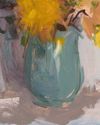
Serena Rowe
The Scottish painter tells STEVE PILL why time is precious, why emotional responses to colour are useful, and how she finds focus every day with the help of her studio wall
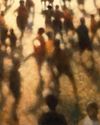
Bill Jacklin
Chatting over Zoom as he recovers from appendicitis, the Royal Academician tells STEVE PILL about classic scrapes in New York and his recent experiments with illustration